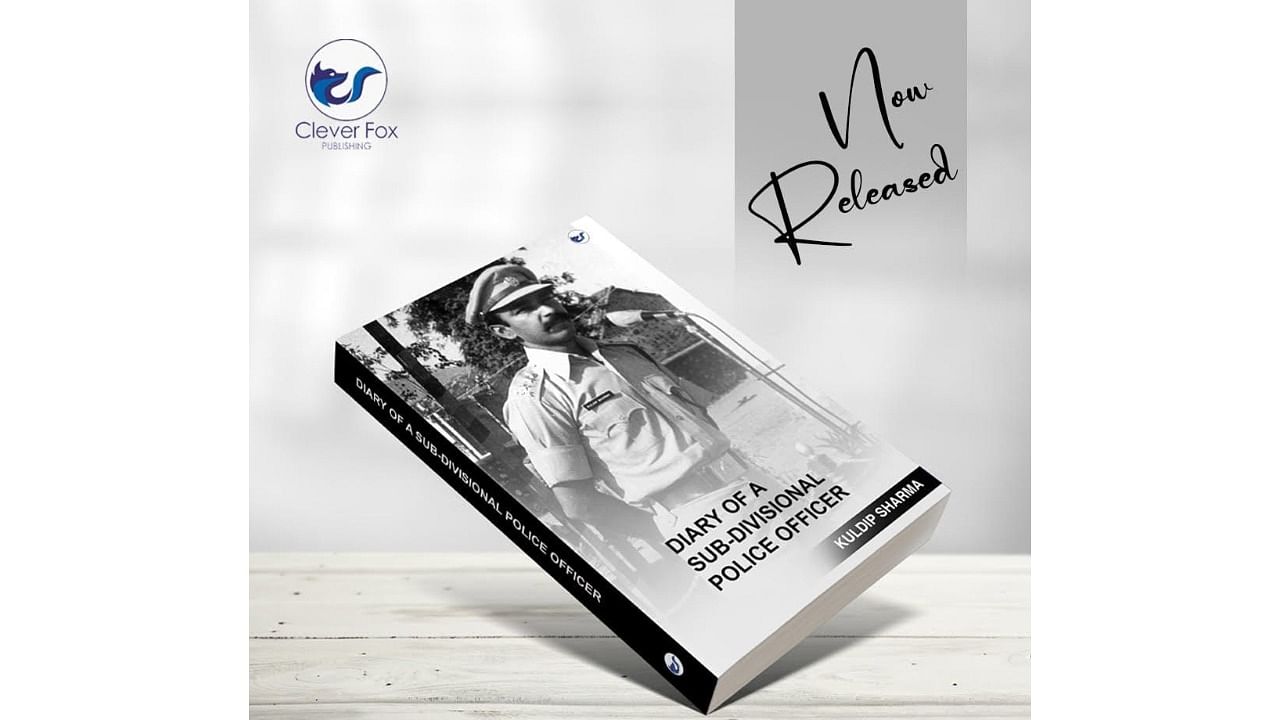
The 'Diary Of A Sub-Divisional Police Officer' will be formally launched in Bengaluru on July 12.
Credit: Special Arrangement
Ahmedabad: "Technically almost the entire village could also be prosecuted similarly. Within twenty-four hour everybody knew that Sarojba had been done to death. And yet such are the traditions, perhaps emanating out of antagonizing a prominent community like the darbars, and amongst them the fear of calumny, and the desire to retain the male hegemony, that total silence prevailed throughout the village. Omerta may have been an Italian code of honour for a conduct that places importance on silence in the face of questioning by authorities or outsiders, especially during criminal investigations; what happened at Kanad village was evidence enough that it existed in India as well."
"An SDPO must have an eye for detail, and the ability to interview and interrogate different types of personalities he or she may encounter. The job requires certain tenacity and perseverance to achieve results. For a directly recruited Assistant or Deputy Superintendent of POlice, these traits if imbibed early would go a long way in converting them into competent police officers. Tact is indispensable, true courage is required in many situations, and he or she must always be ready in an emergency to risk health, if the cause so requires...."
These are some of the excerpts from a new book Diary Of A Sub-Divisional Police Officer, written by retired Director General of Police and ex IPS officer Kuldip Sharma of 1976 batch. The book, a work of his one-year of field experience as an SDPO from 1979 to 1980 in the state, gives details of witnessing Italian mafia's "Omerta" kind of code in Gujarat village and details of police procedure required to be followed during investigation and prevention of crimes.
With many anecdotes about how he solved his first few important criminal cases as an SDPO, Sharma describes procedures laid down in the police manual. He has used these records from his weekly diaries as an SDPO. Even for a general reader, the book is informative about the procedures required while dealing with crime and reading them with real stories that Sharma has woven in, becomes interesting.
For instance, Sharma describes the importance of "anonymous information" in policing by narrating a story of a village where a married woman was beaten to death and was hurriedly cremated. He gives first hand account of the village, dominated by upper castes, which prefers to keep silence over the murder as making it public could have brought calumny to the family and the particular caste. He has termed the silence of the village as 'Omerta', a code among the mafia to keep mum about their activities.
"Two ranks in the police force, namely, District Superintendent of Police and the Station House Officer, garner all the attention of both the public and the media. This book recognizes the critical and substantive role played by the Sub-Divisional Police Officer in the police administration of this country, particularly in detection and investigation of serious crime," Sharma writes on importance of SDPO.
The author is better known for having several run-ins with the previous government led by the then chief minister Narendra Modi. A series of legal battles between Sharma and the government ensued since 2002 post Godhra riots and became bitter following cases such as Madhavpura Mercantile Co-operative Bank case, Sohrabuddin Sheikh encounter, among others.
Once hailed as a "tough cop" for arresting dreaded gangster Adul Latif, an associate of Dawood Ibrahim, in 1995 and credited to have set up Gujarat's Anti-terrorist Squad (ATS) in 1993, among other things, the fall out with the state government led to his isolation to insignificant postings including as an MD of state-run Gujarat Sheep and Wool Corporation Ltd.
He went on central deputation as Director General of Bureau of Police Research and Development from where he retired in 2012. Later, he was appointed as an advisor in the ministry of home affairs. He was also on the United Nation Panel of Experts for Sudan and served in Afghanistan, Nepal and Solomon Islands. In 2015, he joined Congress and remained active until the 2017 state assembly election.
He was served chargesheet in a case pertaining to 1985 in connection with an alleged fake encounter and two missing persons of the family in Bhuj taluka of Kutch district where he was posted as Superintendent of Police. His ex-IAS brother Pradeep Sharma, too, is facing nearly a dozen FIRs related to alleged corruption.
Although the contents of the book is limited to a year of experience, the book reads like a guidebook especially for the rookie cops. Through the stories of his first hand encounters with crimes and investigation, Sharma explains in detail not just about the perpetrators but also their socio-economic backgrounds to give the readers some perspective.
Chapters like "Anonymous Information," "An Undetected Robbery", "Of Criminal Tribes, Police Patels and Wagharies," "In a Fit of Rage" and "Infidelity" reveal not just the nature of the crime but also the society and its fallacy. The book has been published by Clever Fox, which is going to be formally launched in Bengaluru on July 12.